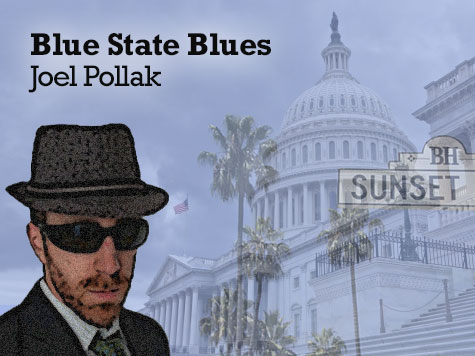Once upon a time, the civil rights movement was deeply concerned about the rights of criminal defendants. Not anymore. Today, those who say they care most about civil rights are calling for grand jury reforms that would make it easier to indict those accused of certain, racial crimes.
Yet after the Trayvon Martin case, there is no guarantee those trials would lead to convictions. So I say: let us revive a time-honored practice: trial by ordeal.
It would work as follows. The accused racist–Darren Wilson, for example–would be arrested and led by Rev. Al Sharpton (or his designee) to the reflecting pool at the Lincoln Memorial, where Dr. Martin Luther King, Jr. gave his “I Have a Dream” speech. The defendant would then be bound (gently) and thrown (humanely) into the dark, redemptive waters. If he sank to the bottom, he would be acquitted. If he floated, he would be convicted.
Of course, those exonerated by the ordeal would still drown. Yet they would die with dignity. Their sacrifice for the sake of racial justice would earn them a place in the pantheon of “the struggle.” They would also set an example for others, whose commitment to equality may be weak or superficial at best.
Over time, the beneficial effects of the trial by ordeal may inspire us to conduct trials even the absence of an alleged crime, simply to test our society’s progress.
It is possible that some of those who would rise to the top would actually be innocent of the crimes of which they had been accused. Survival is a natural human instinct, after all, and a few might find the strength to swim free. Yet their subsequent punishments would still be appropriate. Even if they were not guilty of the particular charges, they would still be culpable in a general sense, since racism is a structural component of our society.
If it sounds far-fetched to bring back a procedure that was once condemned as a cruel and irrational medieval ritual, consider that national civil rights leaders such as the Rev. Jesse Jackson are seriously floating the idea that the members of grand juries themselves should be punished for failing to deliver indictments in racially charged cases. Surely throwing a few, likely guilty defendants into a pond is better than exposing members of juries to legal risk.
There are additional advantages to trial by ordeal. The crowds that have looted stores, burned churches, blocked traffic and vandalized private property have become angrier with each successive acquittal or non-indictment of a defendant accused of a crime against a black victim. It would be best for society as a whole to appease their righteous anger–for the time being, at least–by sacrificing one individual. Then public healing could begin.
Trial by ordeal would definitely be an improvement on our current system. As CNN’s Jeffrey Toobin noted this week with regard to the Eric Garner case, the Staten Island grand jury that failed to indict police officer Daniel Pantaleo for choking Garner to death probably included some locals with politically conservative leanings. Even though the jury was racially diverse, the tacit racism of their cop-friendly community must have played a role.
Justice for the individual defendant is an outdated, even conservative idea. The victims of past racism suffered as a group, after all, not just as individuals. Therefore the group, or its representatives, must be made whole.
As President Barack Obama and others said this week, the outcome of the Garner case reflects racial injustice that is decades, even centuries old. Let us go back centuries to find the remedy. Then justice will be seen to be done.
Senior Editor-at-Large Joel B. Pollak edits Breitbart California and is the author of the new ebook, Wacko Birds: The Fall (and Rise) of the Tea Party, available for Amazon Kindle.
Follow Joel on Twitter: @joelpollak

COMMENTS
Please let us know if you're having issues with commenting.